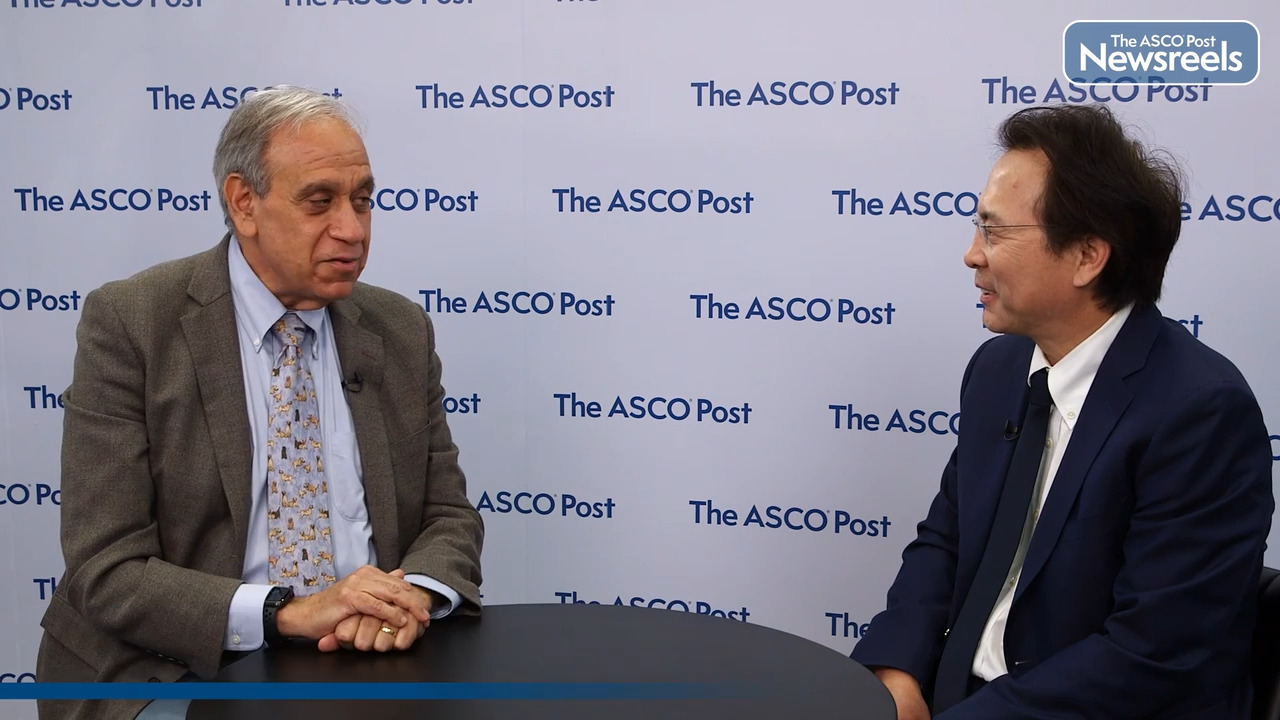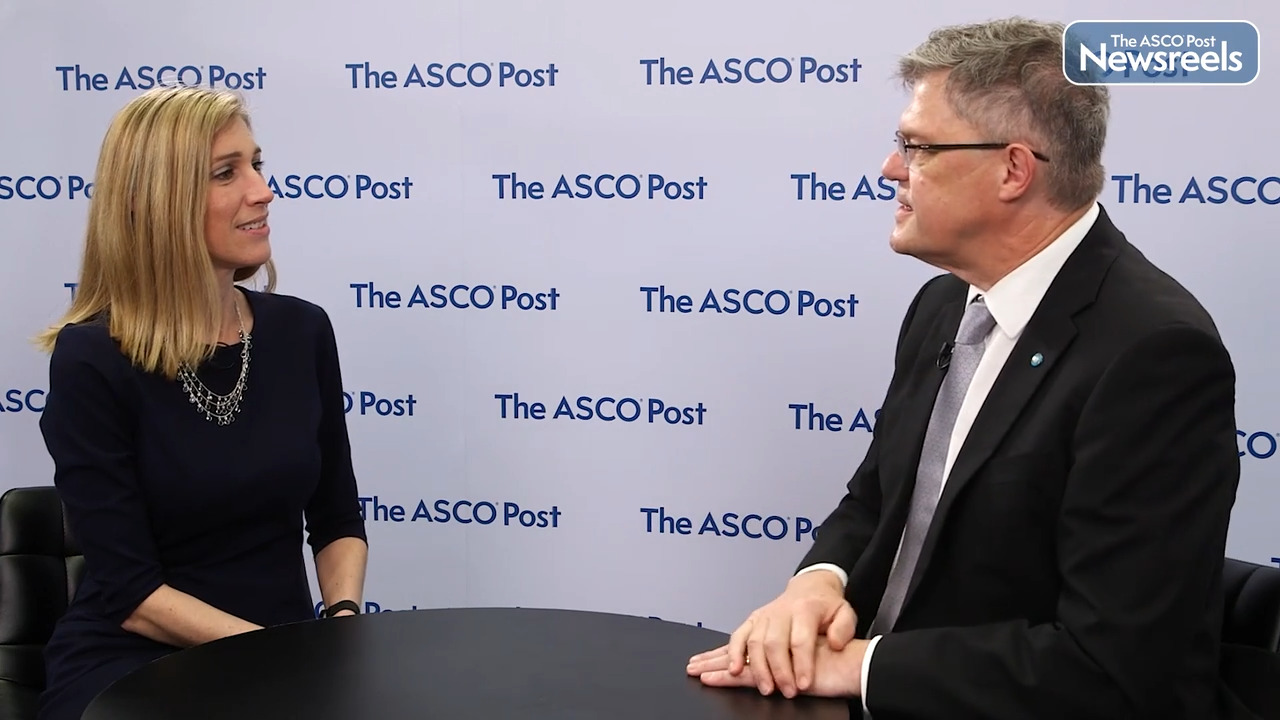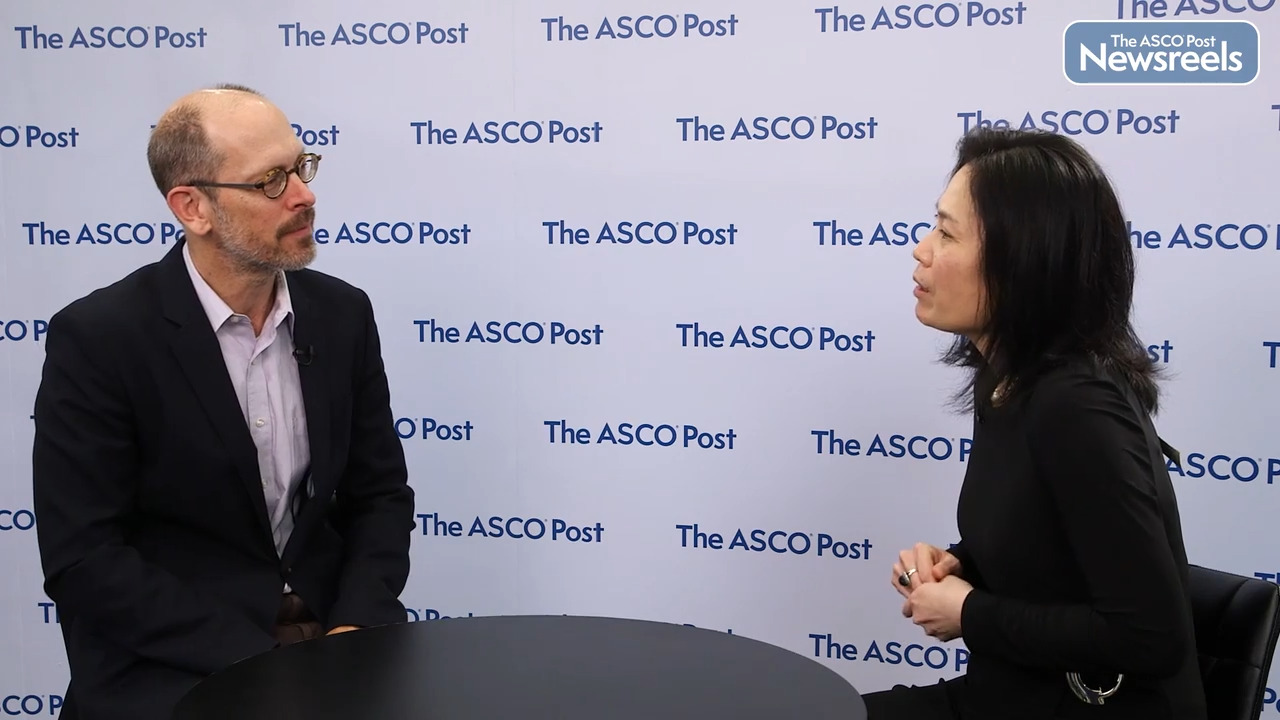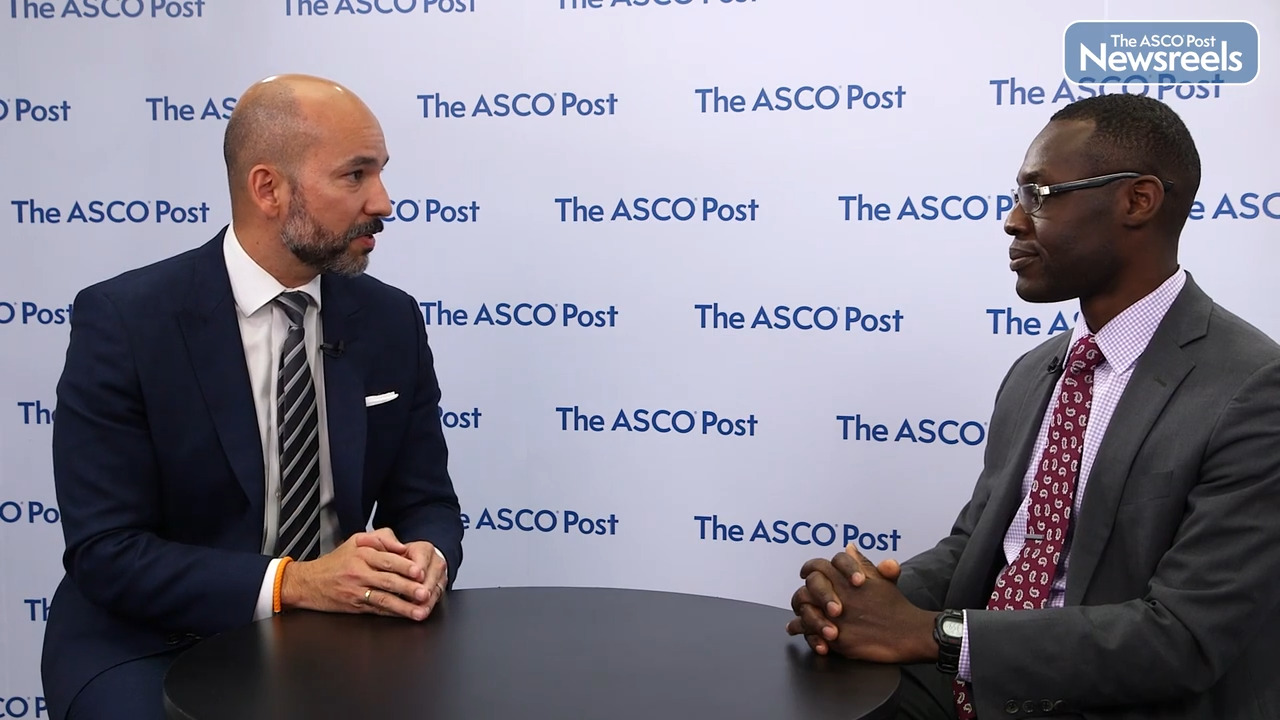Maxwell Oluwole Akanbi, MD, PhD, on Lung Cancer: The Effect of Screening on the Incidence of Advanced Disease
2022 ASCO Annual Meeting
Maxwell Oluwole Akanbi, MD, PhD, of McLaren Regional Medical Center, discusses the study he conducted, using the SEER database, to evaluate the impact of lung cancer screening recommendations on low-dose CT scanning. The data suggest that guidelines from the U.S. Preventive Services Task Force led to a more rapid decline in the incidence of advanced disease in the United States, especially among minority populations (Abstract 10506).
Transcript
Disclaimer: This video transcript has not been proofread or edited and may contain errors.
Lung cancer is the leading cause of cancer mortality in the US, and this is because most patients with lung cancer are diagnosed at advanced stages of the disease. Trying to make patients present earlier has been an elusive challenge, until in 2011, when results of the National Lung Cancer Trial were reported. This study showed that low-dose CT scan could improve survival in patients with lung cancer by making earlier diagnosis. Although this has been shown in clinical trials, the government has ruled out lung cancer screening in the general population without also actually knowing whether it is efficacious in the general population.
Our study was to evaluate the effectiveness of lung cancer screening in the US general population. You will use the SEER database, we analyzed data of patient diagnosed with lung cancer from 2004 to 2018. Our goal was to see if the incidence of advanced lung cancer reduced over this time. Our results showed that incidence of advanced lung cancer actually decreased in the US population following the rollout of lung cancer screening. This was particularly significant in minority populations. This is encouraging because there have been concerns that lung cancer screening may not be very effective in this population because they had limited access to screening facilities.
So, while this is encouraging, the work is not yet done. Our end goal is to make sure there's reduction in lung cancer mortality. There are still barriers between screening and mortality, so the next stage of our study will be to see whether this reduction in incidence of advanced lung cancer actually translate to reduction in lung cancer mortality.
Related Videos
The ASCO Post Staff
Akihiro Ohba, MD, of Japan’s National Cancer Center Hospital, discusses phase II data from the HERB trial on fam-trastuzumab deruxtecan-nxki, which showed activity in patients with HER2-expressing unresectable or recurrent biliary tract cancer (Abstract 4006).
The ASCO Post Staff
Andrew D. Zelenetz, MD, PhD, of Memorial Sloan Kettering Cancer Center, and Michael L. Wang, MD, of The University of Texas MD Anderson Cancer Center, discuss primary results from the phase III SHINE study, which showed that ibrutinib, in combination with bendamustine/rituximab and rituximab maintenance, may set a new benchmark for patients aged 65 or older with mantle cell lymphoma. With a median progression-free survival of 6.7 years, the ibrutinib combination is more beneficial than currently used chemoimmunotherapy (approximately 1.5–3.5 years) (Abstract LBA7502).
The ASCO Post Staff
Alicia K. Morgans, MD, MPH, of Dana-Farber Cancer Institute, and Ian D. Davis, PhD, MBBS, of Monash University and Eastern Health, discuss the latest findings from ANZUP Cancer Trials Group’s ENZAMET cooperative group trial of enzalutamide in patients with metastatic hormone-sensitive prostate cancer. The results corroborate the benefit of enzalutamide with improved overall survival, and involve some exploratory subgroup analyses (Abstract LBA5004).
The ASCO Post Staff
Michael J. Overman, MD, of The University of Texas MD Anderson Cancer Center, and Jeanne Tie, MBChB, MD, of Peter MacCallum Cancer Centre, discuss results from the DYNAMIC trial, in which a circulating tumor DNA (ctDNA)-guided approach reduced the use of adjuvant chemotherapy without compromising recurrence-free survival in patients with stage II colon cancer (Abstract LBA100).
The ASCO Post Staff
Gilberto de Lima Lopes, Jr, MD, MBA, of Sylvester Comprehensive Cancer Center at the University of Miami, and Oladimeji Akinboro, MD, MPH, of the U.S. Food and Drug Administration (FDA), discuss a data analysis, which suggests that most subgroups of patients with advanced non–small cell lung cancer with a PD-L1 score of 50% or greater who are receiving FDA-approved chemotherapy/immunotherapy regimens may have overall survival outcomes comparable to or better than immunotherapy-alone regimens (Abstract 9000).





